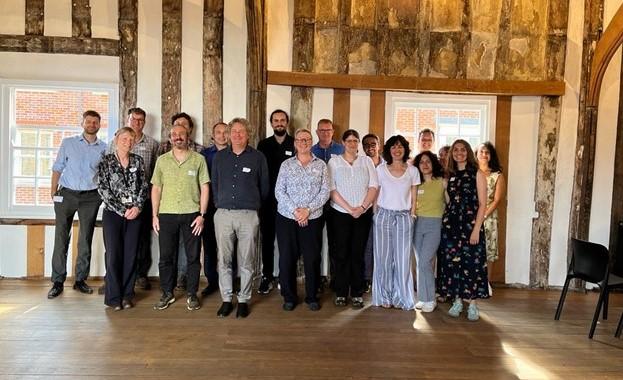Protecting and recovering local biodiversity

On 21 and 22 June 2023, the Policy Learning Platform organised an on-site peer review for the benefit of the Norfolk County Council on the topic of Protecting and recovering local biodiversity – particularly insect populations.
Peers from across Europe
Alongside Magda Michaliková and Astrid Severin, our environment and resource efficiency Thematic Experts, four excellent peers participated in this event:
- Laurence Colleran, South Dublin Council, Ireland
- Perez Mayo Diego, Spain
- Darren Saliba, Heritage Parks Federation, Malta
- Francesco Scorza, University of Basilicata, Italy
Recommendations
The Norfolk County Council is in an excellent position to support the increase of biodiversity and nature recovery in the County. There are a number of initiatives and projects in place which can be built upon, and local stakeholders are open to collaboration on the topic. Examples of good practices can already be seen on some county farms and in other spaces around the county.
The outcome of the peer review will be implemented in a Pollinator Action Plan, which is now being drafted by the Council.
- Norfolk County Council would benefit from a communication strategy, defining vision and objectives for biodiversity and pollinators, deriving key messages for different target groups, as well as priorities and monitoring parameters.
- A simple and easy-to-understand approach should be used in communication, action plan, branding and monitoring. It is important to explain what is done i.e. through signs like ‘We are creating wilderness’.
- Connect with communities (i.e. farmers, general public) and bring the people on board in participatory processes (co-creation). Norfolk could tap into possibilities of establishing itself as a sustainable tourism & natural food destination.
- The Council should use the solutions that are present and take inspiration abroad, copying what works.
- Training, education, awareness-raising campaigns, nature trails, etc. can be used to improve understanding of biodiversity and pollinators’ ecosystems services. Bees can be used as a simple and effective icon – helping bees helps other insect populations and natural habitats in general.
- Ecosystem services can be used as a tool for spatial monitoring and measuring values.
- It is important to provide a combination of nesting and feeding habitats and to prevent degeneration of habitats. Low quality habitats can be turned into new nesting and hibernation spaces.
- Up to 20% of farm land per 1 km2 should be dedicated to natural area for a maximum biodiversity increase.
- Roads can be used as green corridors connecting the dots.
- The Council should create a “business case” for farmers, involve them in trainings and clearly communicate the benefits of dedicating certain areas to pollinators (increase in productivity, product quality, increase in environmental value, potential for agro(bio) tourism and carbon credits as an additional income for the farmers).
- Various incentives can be offered - monetary, reduced rent, prolongation of the lease, provision of local seed mix, etc., use of a scoring system, subsidies for land dedicated to hedgerows, wildflowers, awards and certifications.
- The Council should set up stakeholder groups based on different methods of farming, conduct one on one meetings with farmers and provide networking opportunities.
- Create an information hub to showcase good practices, alternative methods of farming, study visits (farm walks) and demonstration site with differently managed plots.
The host’s policy challenges, and all the peer suggestions can be found in the follow-up report, which will be published soon.
“The council is going in the right direction. It is a huge opportunity to help the farmers and for that you need to understand their position and perspective. Best of luck to everybody!”
“It has been a hugely interesting topic and exchange and I would like to thank everyone who has been involved. We want to ensure biodiversity thrives in the County, and will now implement these learnings in our Pollinator Action Plan”.
Apply for a peer review!
Find solutions to your regional policy challenges with our experts and selected peers during a two-day peer review.


